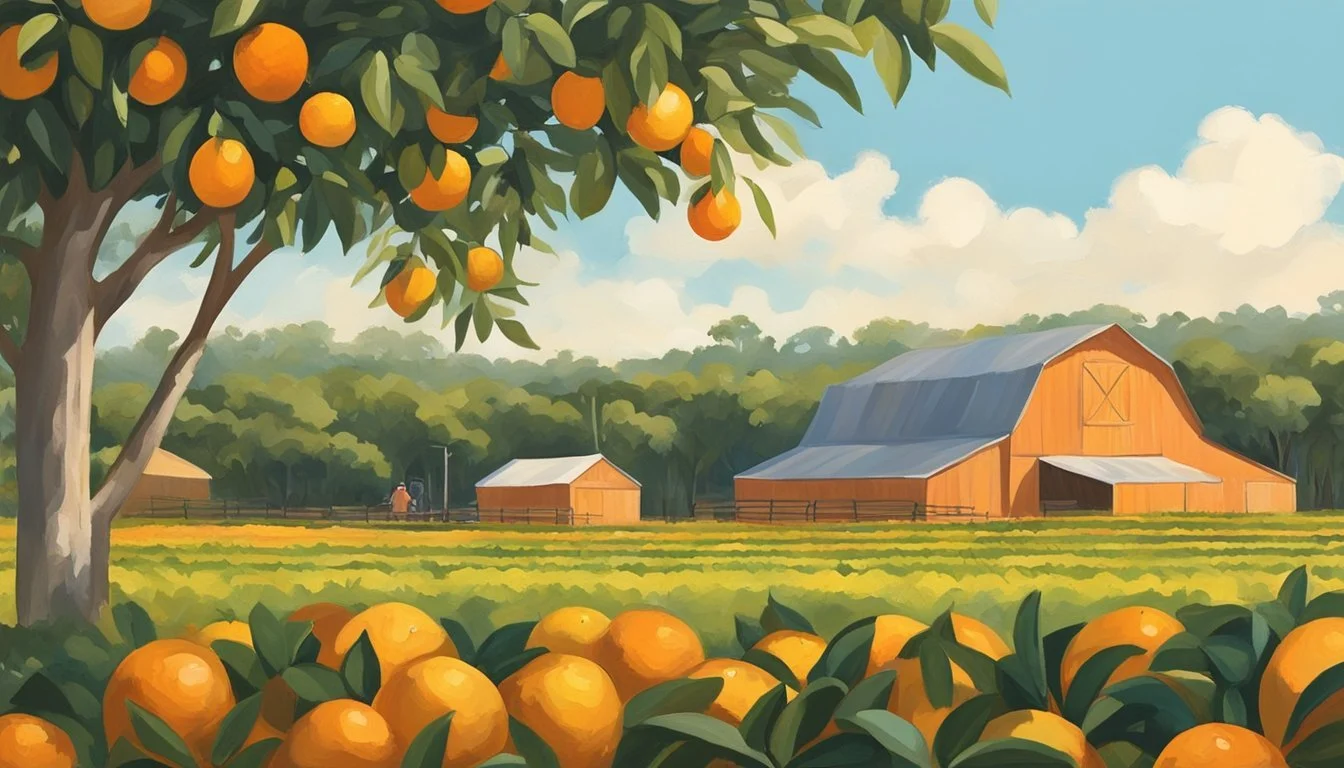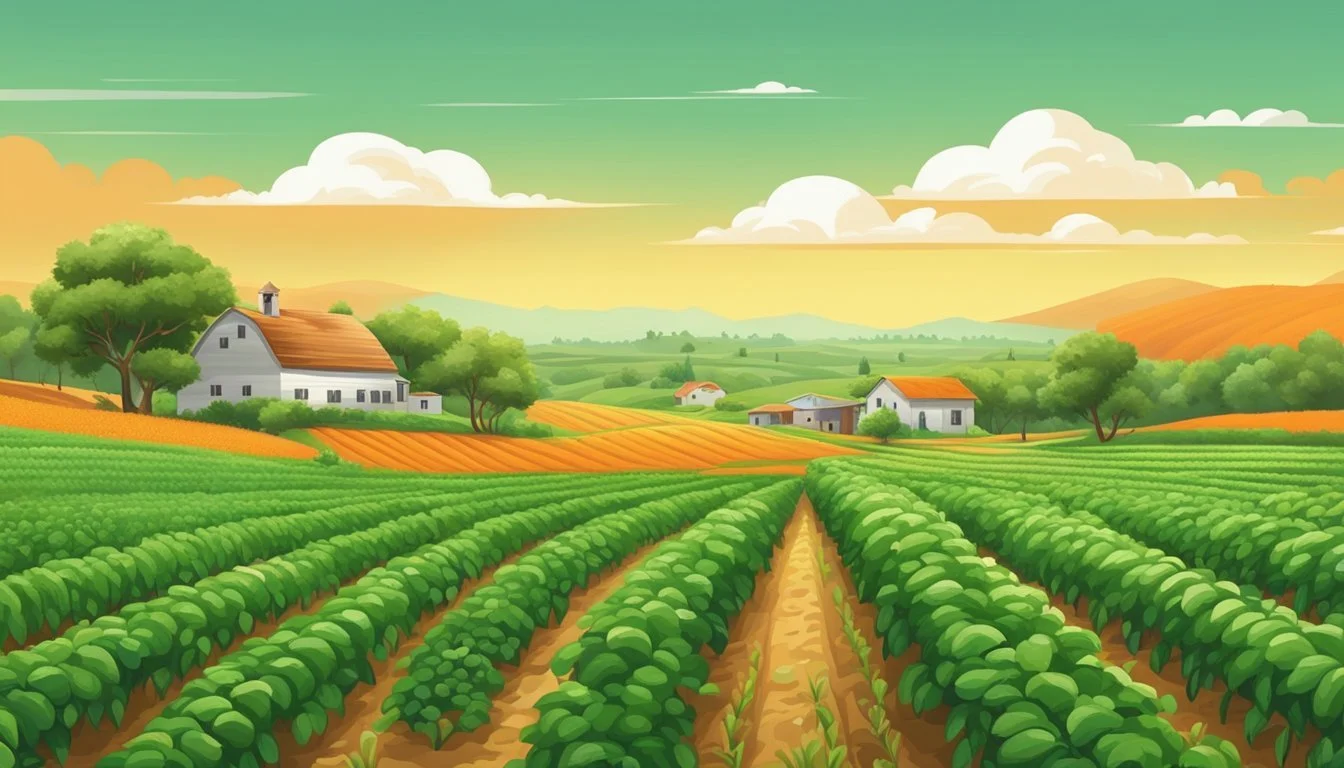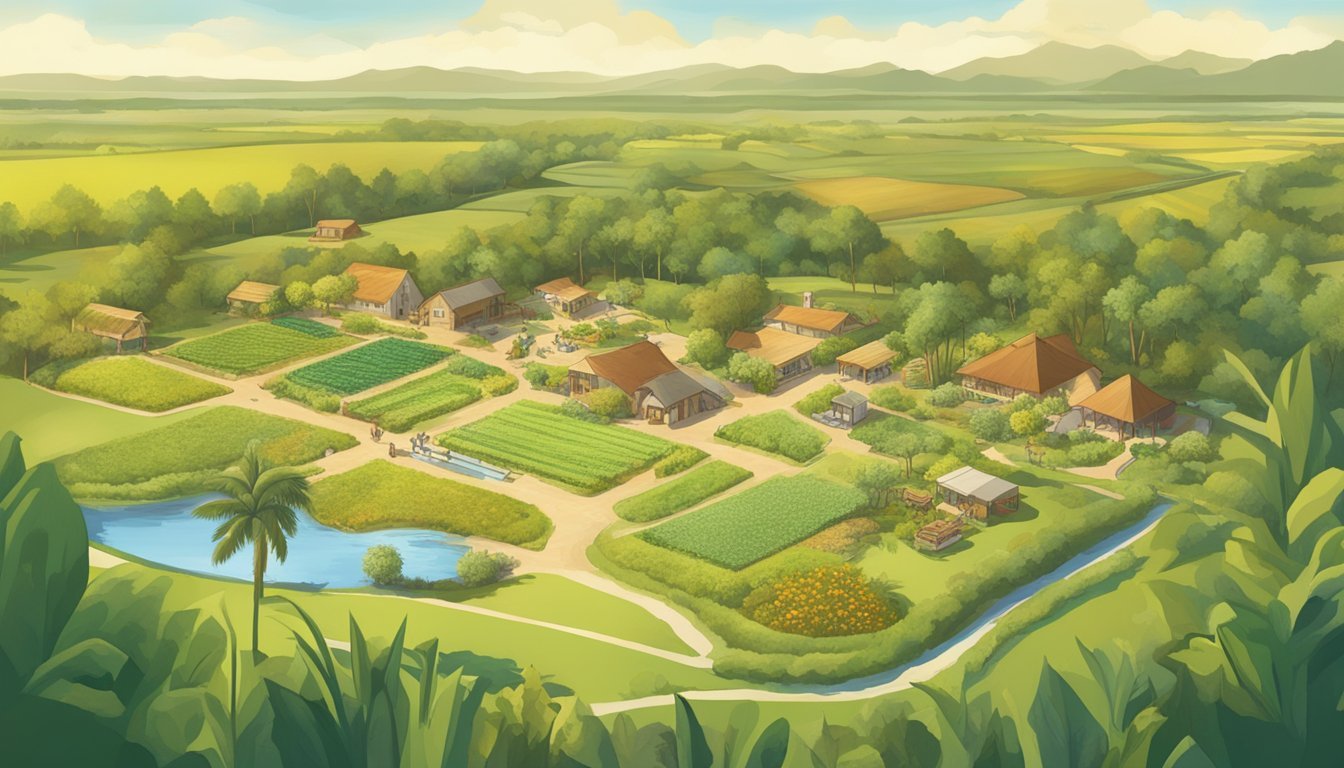Agritourism in Florida
Unveiling the Sunshine State's Farm Experiences
Agritourism in Florida represents the intersection of the state's two dominant industries: tourism and agriculture. Understanding the landscape of agritourism is essential to appreciating how Florida has embraced the fusion of these sectors to offer unique experiences to both residents and visitors. As the state opens up its diverse array of farms, ranches, and vineyards, guests are welcomed to enjoy and learn from the wealth of activities related to agriculture. These activities not only promote the appreciation of Florida’s natural beauty but also educate the public on agricultural practices and the origin of their food.
With the state's favorable climate and rich agricultural history, Florida presents a year-round destination for those seeking agritourism adventures. Florida’s Agritourism Association, alongside numerous operators, has been pivotal in showcasing a variety of experiences ranging from u-pick fruit farms and winery tours to educational field trips that illustrate the state’s commitment to cultivation and conservation. These experiences allow visitors to indulge in the abundant bounty while gaining insight into the agricultural processes.
The evolution of agritourism in Florida is also bolstered by supportive state laws that have enabled the considerable growth of this niche. Since 2013, measures have been enacted to encourage farmers to share their land and livelihood with the public, effectively doubling the number of agritourism operations. This expansion underlines the significance and untapped potential of agritourism in contributing to Florida's overall economic and cultural vitality.
Understanding Agritourism
Agritourism in Florida intertwines the state's robust agricultural heritage with its thriving tourism sector, fostering an avenue for education, entertainment, and economic growth while navigating specific regulatory frameworks.
Definition and Scope
Agritourism refers to commercial enterprises at a bona fide farm that are conducted for recreational, entertainment, or educational purposes. Such activities allow the public to experience and understand agricultural production firsthand. In Florida, agritourism encompasses a range of activities, including harvest-your-own operations, farm tours, and agricultural-related festivals.
History and Development in Florida
The concept of agritourism has gained traction in Florida as a means to bolster the state's two predominant industries: agriculture and tourism. As the agritourism sector expanded, it capitalized on Florida's existing tourist infrastructure and diverse agricultural products, thereby contributing to Florida's economic diversity and agricultural education.
Regulations and Liability
The Florida Department of Agriculture and Consumer Services oversees agritourism operations, ensuring compliance with state statutes. Florida Statutes 570.85-570.89 provide liability protections for agritourism operators, reducing the risk associated with on-farm visitor injuries, as long as proper notifications are displayed. Nevertheless, providers typically obtain farm liability insurance to further mitigate risk.
Popular Agritourism Destinations
Florida's agritourism scene offers visitors a diverse range of experiences from hands-on farm activities to relaxing vineyard visits. The state boasts a variety of farms, ranches, and festivals that showcase its rich agricultural heritage.
Farms and Ranches
Dakin Dairy Farms stands out as a noteworthy example of farm-to-table practices and education. Visitors can tour the dairy to see the milking process, taste fresh products, and even attend farm weddings. Educational programs are also available, further solidifying its reputation for excellence in agritourism.
Local ranches often host events and provide tours to give guests a glimpse into the daily operations of livestock care and management. These experiences may include:
Cattle ranch tours
Goat farm visits with cheese making demonstrations
Pecan orchard excursions
Vineyards and Wineries
Florida's climate fosters a unique viticulture, allowing for vineyard tours that often conclude with wine tastings. Local wineries take pride in their craft and offer insights into the winemaking process along with:
Guided vineyard tours
Sampling of regional wines
Opportunities to purchase local vintages
These vineyards frequently feature beautiful landscapes, creating picturesque settings for events such as wine festivals or even vineyard weddings.
Farmers Markets and Festivals
Farmers markets present a cornucopia of fresh produce and artisan goods direct from Florida's agricultural community. They are ideal places to engage with local farmers, sample a variety of foods, and participate in cooking demonstrations.
Agricultural festivals highlight the state's bounty through events like:
Honey festivals
U-pick experiences during harvest seasons, like those at the olive groves
Seasonal celebrations that feature farm-fresh culinary offerings
These festivals and markets become lively platforms for farmers to educate the public on sustainable agriculture and to showcase the fruits of their labor.
Experiences and Activities
In Florida, visitors have the opportunity to engage directly with farming and agriculture through a variety of immersive experiences. These activities range from interactive farm tours to hands-on harvesting opportunities and educational workshops, offering something for every age and interest.
Farm Tours and Animal Interactions
Florida agritourism provides a host of informative farm tours where visitors can learn about local agricultural practices. At destinations such as Dakin Dairy Farms, guests can witness the day-to-day operations of a working dairy farm, engage in animal interactions, and even have the chance to pet and feed livestock. These tours often highlight sustainable farming methods and the importance of domesticated animals in agriculture.
Pick-Your-Own and Harvesting Activities
A beloved feature of the Florida agritourism scene is the pick-your-own (U-Pick) experience, with farms across the state inviting visitors to harvest their own fresh produce. Farms offer seasonal selections, where everything from strawberries and blueberries to a variety of other crops can be harvested. Visitors actively participate in selecting the ripest fruits, which enhances the connection between the farm and table.
Workshops and Educational Programs
Educational experiences are a cornerstone of Florida agritourism, with many farms offering workshops for visitors to gain insights into farming practices and local ecosystems. From learning about aquaculture to honey production processes, guests can delve into a range of specialized agricultural subjects. These workshops are designed to both educate and inspire sustainable practices among participants.
Economic and Cultural Impact
Agritourism in Florida stands at the intersection of the state's robust agriculture industry and its thriving tourism sector. This fusion has spurred economic benefits and reinforced Florida's cultural identity through unique experiences that highlight the significance of the farming community.
Contribution to Local Economy
Agritourism has become a pivotal economic contributor in Florida, providing additional income streams for farmers and ranchers. By opening farms to the public for recreational and educational experiences, agricultural operators have been able to diversify their revenues, mitigating the financial pressure of fluctuating commodity prices and competition. The Florida Agritourism Association, along with various agricultural and tourism professionals, recognizes the potential to:
Strengthen local economies by creating jobs and promoting spending within rural communities.
Provide financial stability for small and medium-sized farms through visitor participation in farm activities.
These aspects collectively enhance the economic resilience of the state's agricultural sector.
Cultural Significance for Florida
Agritourism not only bolsters the economy but also nurtures Florida's cultural heritage. It provides an authentic insight into the rural way of life and traditional farming practices, enlightening residents and visitors about the state's agricultural roots. Key cultural contributions include:
Education about the origin and importance of food and agriculture in daily life.
Preservation of agricultural traditions and promotion of family-run farms, which further enriches Florida's cultural tapestry.
By supporting agritourism, Florida celebrates the essence of its agrarian history and introduces people to the families behind the state's agricultural success. The intertwining of agriculture and cultural appreciation shapes a unique identity for Florida in the national context.
Planning Your Visit
When organizing a trip to discover the vibrant agritourism scene in Florida, visitors should consider the best times to visit, the accommodations and facilities available, and health and safety considerations pertinent to their experience.
Best Time to Visit
The optimal season for visiting farms in Florida is generally during the cooler months from November to early April, to avoid the summer heat and humidity. Seasonal activities, such as strawberry picking in winter and early spring or corn mazes in the fall, provide unique opportunities that are not available year-round.
Accommodations and Facilities
Those looking to extend their stay have various options ranging from on-site lodging at certain farms to local hotels and bed-and-breakfasts. On-farm facilities often include food services and amenities tailored for the whole family. When planning a visit, one should contact the property to inquire about specific facilities such as restrooms, dining areas, and parking spaces.
Facility Type Availability Note On-site Lodging Limited Check availability in advance Food Services Common Farm-to-table meals may be offered Family Amenities Varies Inquire about playgrounds, picnic areas, etc.
Health and Safety Considerations
Visitors should be aware of inherent risks associated with outdoor activities and close contact with animals. Farms usually implement measures to ensure visitor safety, but individuals should also take personal precautions. It may be advisable to review guidelines provided by local health departments or the property's safety policy. It is also prudent to check with a property appraiser for any insurance or liability information regarding agritourism activities.
Agritourism Beyond the Farm
Agritourism in Florida extends beyond traditional farm boundaries, integrating with both rural and urban environments to create diverse experiences for the general public.
Expansion into Rural and Urban Areas
In rural areas, agritourism ventures often involve the classification of agricultural land to accommodate visitors. These initiatives may include the construction of new structures or the repurposing of existing ones to support various activities. These structures are not limited to the traditional farm setup and may include additions like marketplaces or event spaces.
In urban settings, agritourism provides an educational window into the farming industry. Urban farms often establish partnerships with restaurants and markets, creating a farm-to-table experience. These collaborations often necessitate construction or adaptation of spaces within the urban landscape to support agritourism activities.
Innovations in Agritourism
Agritourism is characterized by innovative approaches to engage the public. One implementation might be interactive educational programs that bridge the gap between consumers and the origins of their food. Furthermore, the integration of technology can lead to mobile apps that guide visitors through agritourism sites, enhancing their experience.
The industry also sees the incorporation of agritourism activities into existing agricultural operations. For instance, vineyards may add wine tasting tours and boutique restaurants on-site, which merge agricultural production with culinary arts. Each new activity may involve the erection of additional structures to host these new services effectively.






